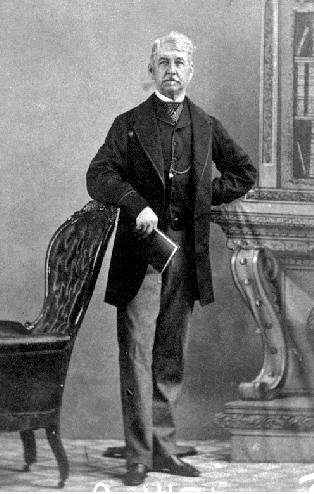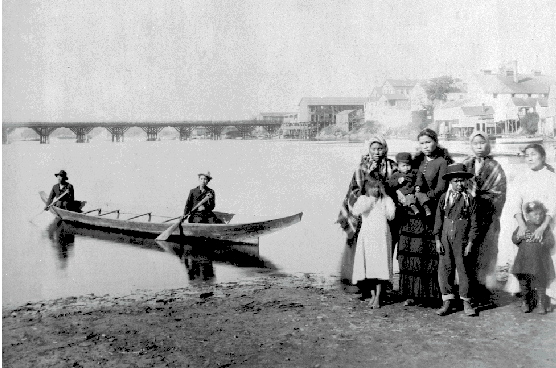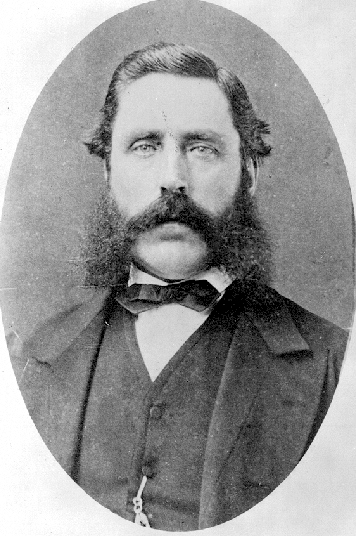The above caption is taken from the September 6th edition of the British Colonist and Victoria Chronicle. There are many other newspaper articles just like it that ran throughout the 1860's. The topic of Indian violence was one that concerned people in Victoria at the time. The Natives were said to go crazy due to the effects of drinking bad liquor. If one is to read the articles published from the time it appears as though Natives did nothing but get drunk and go around causing disturbances. "Hardly a day passes without fights between squaws and squawmen. "was written in the Colonist. (36) Such unruly behavior by the Natives led many to believe that the best way to fix their bad behavior was to take away their alcohol.
In 1860 a law was put in place that prohibited the sale or trading of liquor to the Indians. The law had very little effect; however, due to the fact that in many instances, the only way to convict people of the crime was through Indian testimony, but conveniently the violators could not be convicted on Indian testimony alone. (37) It was a very good business to sell alcohol to the Natives and many people had a vested interest in the trade. It was not a problem that could be easily solved by the people in charge of the colony.
A.E. Kennedy provides us with a good description of how difficult the issue was to deal with. It was one that Kennedy definitely felt needed to be addressed. In correspondence with the Colonial office he writes, "I cannot doubt that almost all the murders that have occurred had their origin in this traffic [talking about selling alcohol to the Natives] its suppression is a matter of Imperial Necessity and as much or more than Colonial interest, and ought to be instituted by her Majesty's government." (38) Kennedy was arguing that he was getting very little support from the colony on the mainland and that the people on the Island did not think that banning liquor was a very good idea. Kennedy was hoping that the British government would step in and take control so that the alcohol business would come to an end.

Governor A.E. Kennedy
- photo courtesy of the BC Archives
Kennedy was on a bit of a mission and
his correspondence suggests that his main concern was with the Hudson's
Bay Company on Vancouver Island. The HBC at the time was involved in trading
liquor to the natives in the northern part of the island and the mainland
as well. Kennedy wrote that the HBC made their "establishments the scenes
of many irregularities," undoubtedly due to the evil effects of the
alcoholic beverages that they served. In these remote areas the liquor was
brewed right on the spot and was "generally diluted with salt water, and
flavoured to suit the Indian taste either as brandy, rum or whisky,
creosote, and even sulfuric acid [was] being (I am credibly informed) used
to give strength and flavour."(39)
With such strong brew being given to the Natives it is no wonder that
they were committing such hideous crimes: like prostitution and murder:
(sarcasm intended).
On the mainland the HBC had adopted a policy of not allowing their employees to trade or sell alcohol to the natives. While on Vancouver Island they did not put in place such a rule. Refusal by the HBC on the Island upset Kennedy: he wrote, "if the HBC would aid, instead of opposing me, to have a law adopted on Vancouver Island, they would find it I think, sound commercial[ly] . . .." (40) On November 20th 1866 Kennedy got his wish when during a meeting of the Committee of the Hudsons Bay Company the following was ordered:
"that the officers of the Company in Vancouver Island and British Columbia
be informed that in the opinion of the Governor and Committee it is in the
interest duty of the Hudsons Bay Company to discourage in every way the sale
of spirituous liquors to the Indians in Vancouver Island and British Columbia. (41)
While this proclamation laid out a policy for the HBC's officials, in reality the liquor trade was difficult to control. While the HBC had taken an official stance against supplying the Indians with booze, many other private interest groups were free to do as they pleased. The many saloons that had opened up during the gold rush were legally allowed to sell liquor and though it was discouraged that they sell to the Natives, not much was done to deter them. Kennedy himself said, "I am comparatively powerless to stop this evil." (42)
In Victoria the Indians had many opportunities to get their hands on alcohol and when fueled by its effects the Natives were thought to act wildly out of control. Reksten writes that "Company men who had witnessed the strangely exaggerated effect that alcohol had on the natives had taken care to limit its availability, but the saloons abounded." (43) The daily police reports from 1866 broached the topic as well, "It is reported to me that Indians are constantly supplied with liquor." (44) Strangely enough, there are no reports of arrests reported for the people who sold the alcohol, the day of or in the days that followed the report. Even when the police knew of whom it was that was selling the booze there does not seem to have been many punishments given to the culprits. (45)
It could be said that many Victorians did not feel as strongly about the problem that Douglas, Kennedy, or some of the upper officials did. To many, Indian drunkenness was a victimless crime, what concern was it of theirs, as long as they stayed on their reserves outside of town. Even when the natives were drunk and causing a "dreadful disturbance," it was not worthy of anything more than a visit by the police. (46) It seems that the only time the police and many other citizens were at all concerned was when the Natives did something that directly affected their lives. Whether it was stealing, prostitution or murder, if a white person was involved it was something that needed to be dealt with. (47)
The so called Indian drunkenness problem surely did exist on some levels, but what I want to argue is that it was not a problem that was exclusive to the Native community that lived on Vancouver Island during the 1860's. The white population were involved in many of the same activities that the Natives were. Drinking was not just a native problem, it was an issue that involved all people living in Victoria.
To find out more about the drinking problem click . . . here.
On the mainland the HBC had adopted a policy of not allowing their employees to trade or sell alcohol to the natives. While on Vancouver Island they did not put in place such a rule. Refusal by the HBC on the Island upset Kennedy: he wrote, "if the HBC would aid, instead of opposing me, to have a law adopted on Vancouver Island, they would find it I think, sound commercial[ly] . . .." (40) On November 20th 1866 Kennedy got his wish when during a meeting of the Committee of the Hudsons Bay Company the following was ordered:
"that the officers of the Company in Vancouver Island and British Columbia
be informed that in the opinion of the Governor and Committee it is in the
interest duty of the Hudsons Bay Company to discourage in every way the sale
of spirituous liquors to the Indians in Vancouver Island and British Columbia. (41)
While this proclamation laid out a policy for the HBC's officials, in reality the liquor trade was difficult to control. While the HBC had taken an official stance against supplying the Indians with booze, many other private interest groups were free to do as they pleased. The many saloons that had opened up during the gold rush were legally allowed to sell liquor and though it was discouraged that they sell to the Natives, not much was done to deter them. Kennedy himself said, "I am comparatively powerless to stop this evil." (42)
In Victoria the Indians had many opportunities to get their hands on alcohol and when fueled by its effects the Natives were thought to act wildly out of control. Reksten writes that "Company men who had witnessed the strangely exaggerated effect that alcohol had on the natives had taken care to limit its availability, but the saloons abounded." (43) The daily police reports from 1866 broached the topic as well, "It is reported to me that Indians are constantly supplied with liquor." (44) Strangely enough, there are no reports of arrests reported for the people who sold the alcohol, the day of or in the days that followed the report. Even when the police knew of whom it was that was selling the booze there does not seem to have been many punishments given to the culprits. (45)
It could be said that many Victorians did not feel as strongly about the problem that Douglas, Kennedy, or some of the upper officials did. To many, Indian drunkenness was a victimless crime, what concern was it of theirs, as long as they stayed on their reserves outside of town. Even when the natives were drunk and causing a "dreadful disturbance," it was not worthy of anything more than a visit by the police. (46) It seems that the only time the police and many other citizens were at all concerned was when the Natives did something that directly affected their lives. Whether it was stealing, prostitution or murder, if a white person was involved it was something that needed to be dealt with. (47)
The so called Indian drunkenness problem surely did exist on some levels, but what I want to argue is that it was not a problem that was exclusive to the Native community that lived on Vancouver Island during the 1860's. The white population were involved in many of the same activities that the Natives were. Drinking was not just a native problem, it was an issue that involved all people living in Victoria.
To find out more about the drinking problem click . . . here.

